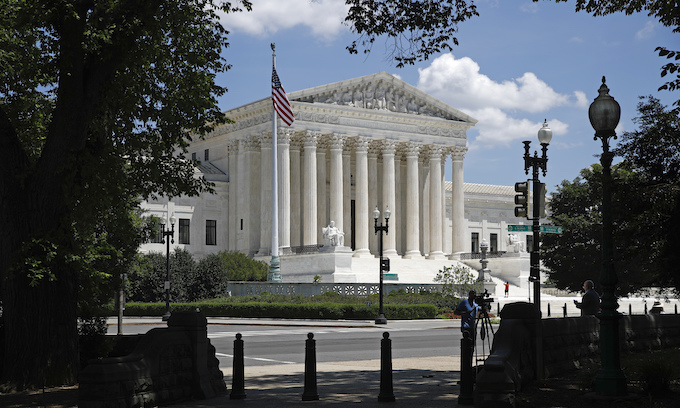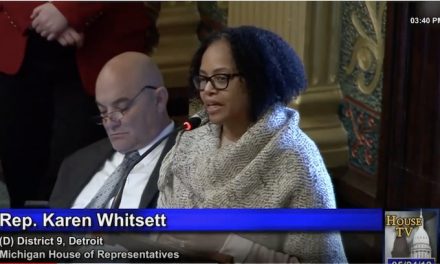The U.S. Supreme Court said on Monday that it’s agreed to hear two cases that challenge the consideration of race in admissions programs at two major American universities — adding another contentious issue to decide in its present term, which ends in five months.
The challenges come from two different suits — one at Harvard University in Massachusetts and the other at the University of North Carolina at Chapel Hill.
In the Harvard case, Students for Fair Admission — a group founded by conservative Edward Blum — argues that affirmative action rules discriminate against Asian American students.
In the North Carolina case, the same group says similarly that Asian-American and White students are discriminated against in favor of Black and Latino applicants.
Students for Fair Admission has filed similar lawsuits against affirmative action nationwide.
In the past, the high court has upheld programs in which race is one of numerous factors considered in student admissions. The most recent challenge argued before the Supreme Court occurred in 2016. Since then, the high court has become more conservative — with three justices appointed by former President Donald Trump — and is expected to examine such practices more critically.
Both Harvard and UNC have prevailed at the federal level, and the decision in the Harvard case was affirmed on appeal in 2020.
With its new legal challenges, Students for Fair Admissions is asking justices to overturn a 2003 Supreme Court decision that upheld the use of race as a plus factor and a virtual template for other affirmative action admission programs.
“Every year, thousands of college applicants have been subjected to unfair and unconstitutional racial classifications and penalties by our nation’s most competitive institutions,” Blum said in a statement in November, when his organization filed the appeal to the Supreme Court.
“These polarizing practices — which a significant majority of all Americans oppose — must end as soon as possible.”
The issue of race in college admissions is the latest divisive issue that the Supreme Court will decide in its current term, which runs into June. Other subjects the court will also determine between now and then include multiple cases on gun rights, abortion and religion.
Copyright 2022 United Press International, Inc. (UPI). Any reproduction, republication, redistribution and/or modification of any UPI content is expressly prohibited without UPI’s prior written consent.
—-
This content is published through a licensing agreement with Acquire Media using its NewsEdge technology.



















“Supreme Court To Hear Cases That Say Affirmative Action At Colleges Is Discriminatory”
The Civil Rights Act of 1964 prohibits discrimination on the basis of race, color, religion, sex or national origin. … The Act prohibited discrimination in public accommodations and federally funded programs.
In the Harvard case, Students for Fair Admission — a group founded by conservative Edward Blum — argues that affirmative action rules discriminate against Asian American students.
In the North Carolina case, the same group says similarly that Asian-American and White students are discriminated against in favor of Black and Latino applicants.
Under the “Let’s Go Brandon’ administration, U.S. citizens are discriminated against in favor of illegal immigrants who must be admitted to colleges and is paid for by the U.S. taxpayer. 🙁 🙁
With how hairbrain both Kavenaugh and Gorsuch have been, i’ve got LITTLE FAITH that they will rule in the right here..
The big D, democrats = discrimination. Uniting America to them is uniting those that can be led through the gates of hell. America has a fire lit that these evil power holders will never put out. We will overcome the atrocities that have been forced on us and at that time these democrats will be like hussein, found hiding in a dung infested filthy rats hole.
We have had busing since the late 60’s. Same teacher,same classroom ,same textbook. If everything in school is the same ?? ,then Affirmative action is not needed. But If you have a culture that works hard and studies hard, why should they be pushed aside for a culture that will not work or study hard.
Frankly I’m sick and tired of Federal interferences based on race whose results are just as discriminating and unjust as the ones they sought to eliminate.
“You cannot bring prosperity by discouraging thrift.
You cannot help small men by tearing down big men.
You cannot strengthen the weak by weakening the strong.
You cannot lift the wage earner by pulling down the wage payer.
You cannot help the poor man by destroying the rich.
You cannot keep out of trouble by spending more than your income.
You cannot further brotherhood of men by inciting class hatred.
You cannot establish security on borrowed money.
You cannot build character and courage by taking away man’s initiative and independence.
You cannot help men permanently by doing for them what they could and should do for themselves.” – Ronald Reagan
And you cannot enlarge American privilege by taking it from one race and giving it to another, nor defeat American racial discrimination by taking from one race and giving it to another. Democrats think they can have their cake and eat it too, but history has proven that when you educate men of evil intent at public expense you just end up with smarter criminals
That’s essentially what the blacks are doing towards asians.. PUNISHING THEM for being hard workers and a culture that rewards it.
Baltimore had been given millions of tax dollars to change the failure rate of their children. The money is gone and the children are not even scoring as high as they did before the money was spent. The administrators who are a black majority are now driving around in $100,000.00 vehicles. So we see what affirmative action is doing there. Can’t reward people for their color because they will never better themselves and stop being a tax burden to those who educate themselves and move forward.
As said, Insanity is doing the same thing over and over (in this case, THROWING YET MORE MONEY at schools), and expecting a different result…